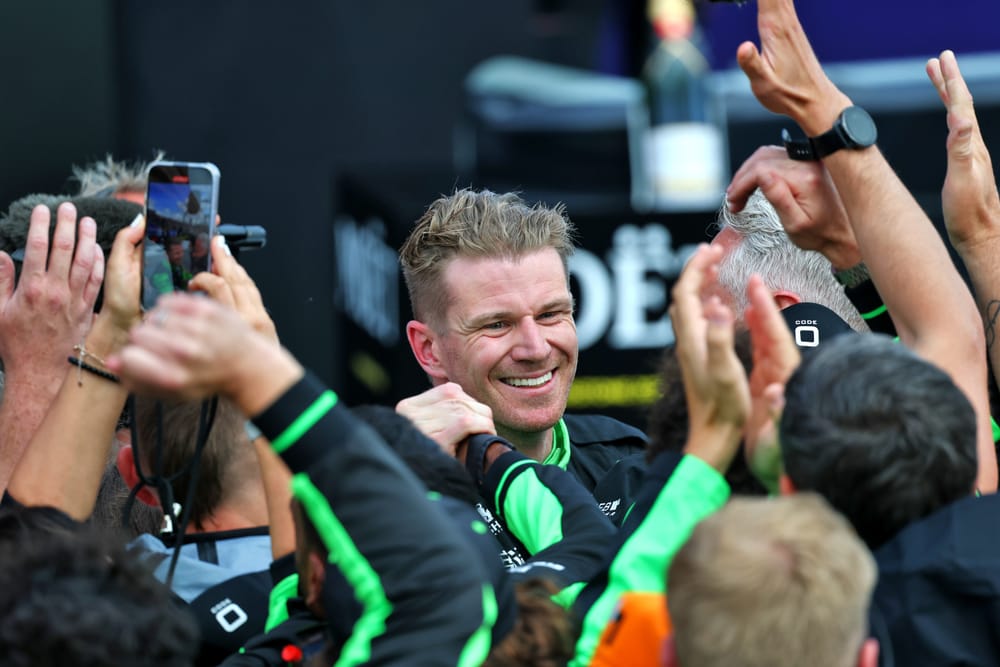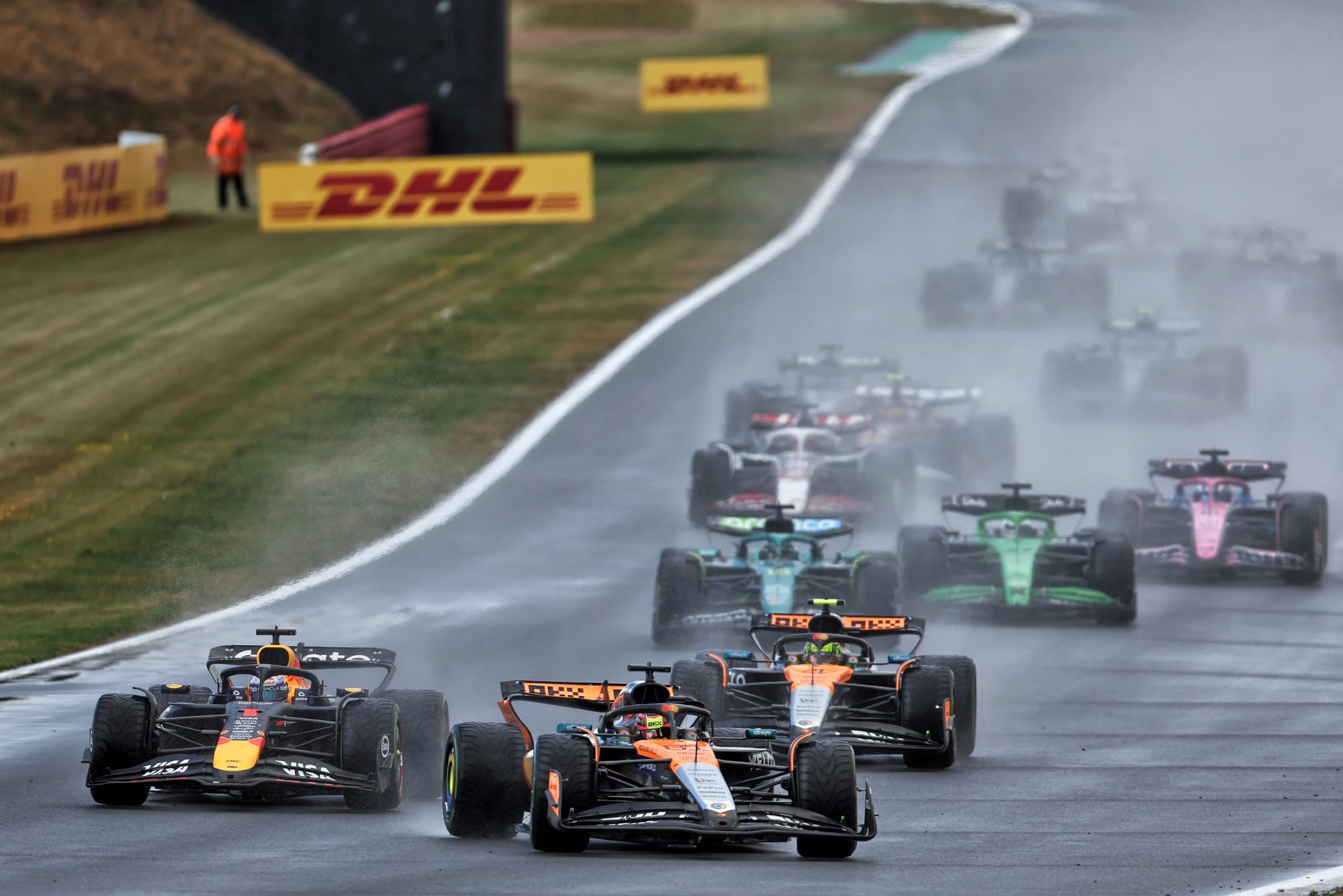A great wrong was put right by Nico Hulkenberg’s shock third place in the British Grand Prix. On his 239th start, he finally stood on the podium for the first time, shedding the record of being, statistically, Formula 1’s most prolific failure.
The unenviable record for most starts without a podium finish, which he has just handed back to Adrian Sutil, was viewed by many as a badge of dishonour. Some used it as a stick to beat him with, proof there was something wrong with him, a fragility that made him choke when opportunity knocked. Now, it can’t be used against him.
It's true there have been errors where he has thrown away chances. The most famous is perhaps his spin during a trip to the runoff at Hockenheim when driving for Renault in 2019, although the collision with Lewis Hamilton at Interlagos at 2012 was even more painful.
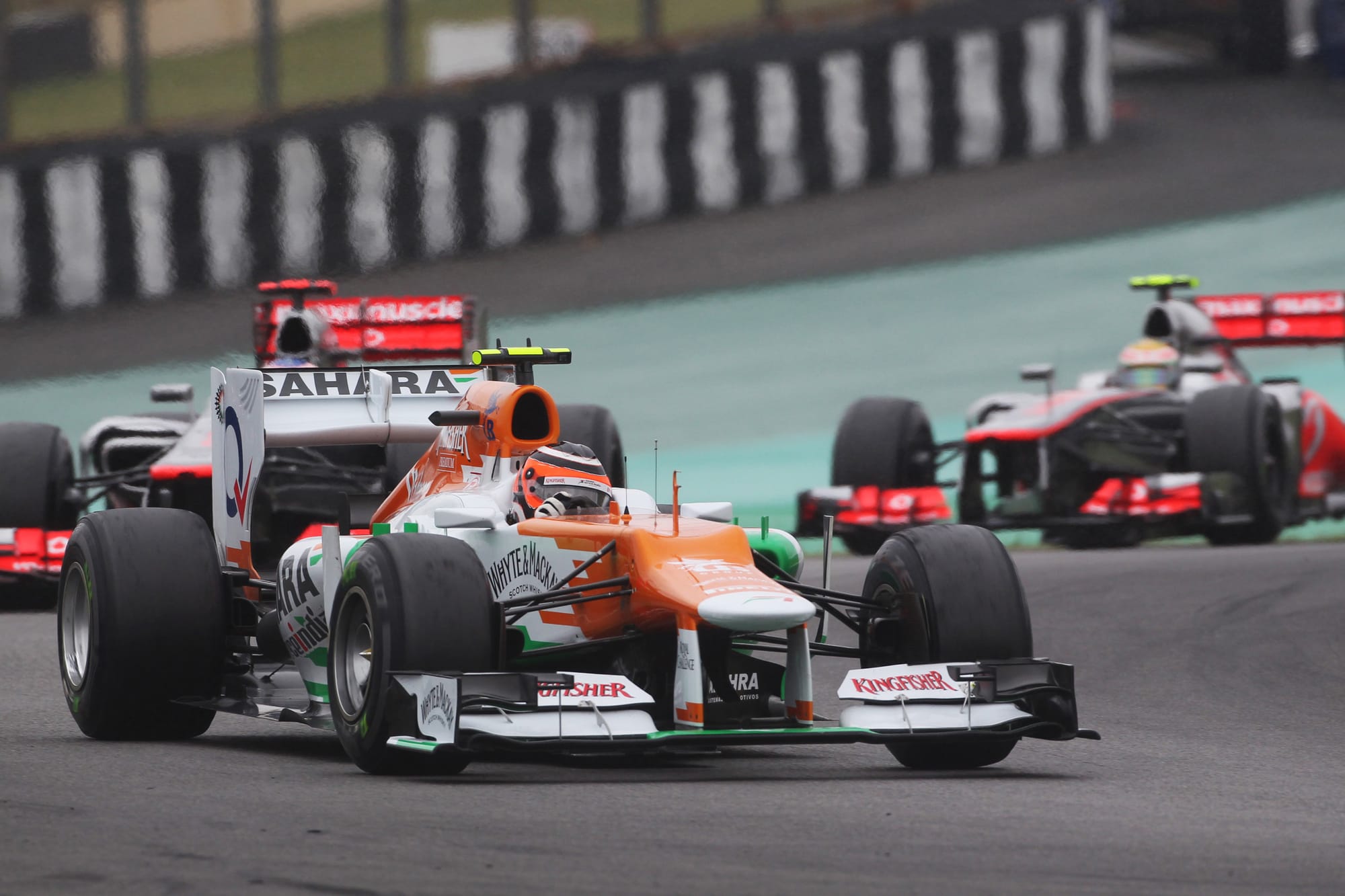
There, he was improbably trying to reclaim the lead in a race where he and Jenson Button had been out of sight after flying on slicks in the damp before the safety car intervened. That he was even fighting for the race lead in a Force India in that era was astonishing.
Other than that, before Sunday, he’d driven for teams that took a grand total of four podiums during his time there - all four of those falling to Sergio Perez. Yet one of those occasions, Monaco in 2016, was destined for Hulkenberg until a badly-timed safety car and a strategic error dropped him behind his team-mate. On other occasions, astonishing tyre management was key, an area where Perez had remarkable touch.
READ MORE: Why Piastri was handed race-losing British GP penalty
That Hulkenberg hadn't bagged a podium before now was largely about happenstance. Often in the wrong place at the wrong time, the occasional flirtation with Ferrari never yielded a top drive and he’s spent most of his career fighting for minor points - 90 times finishing between seventh and 11th.
It wasn’t the career he looked destined for when he arrived in F1 in 2010 with Williams, touted by many, including me, as a future world champion, but it’s been a remarkable one.
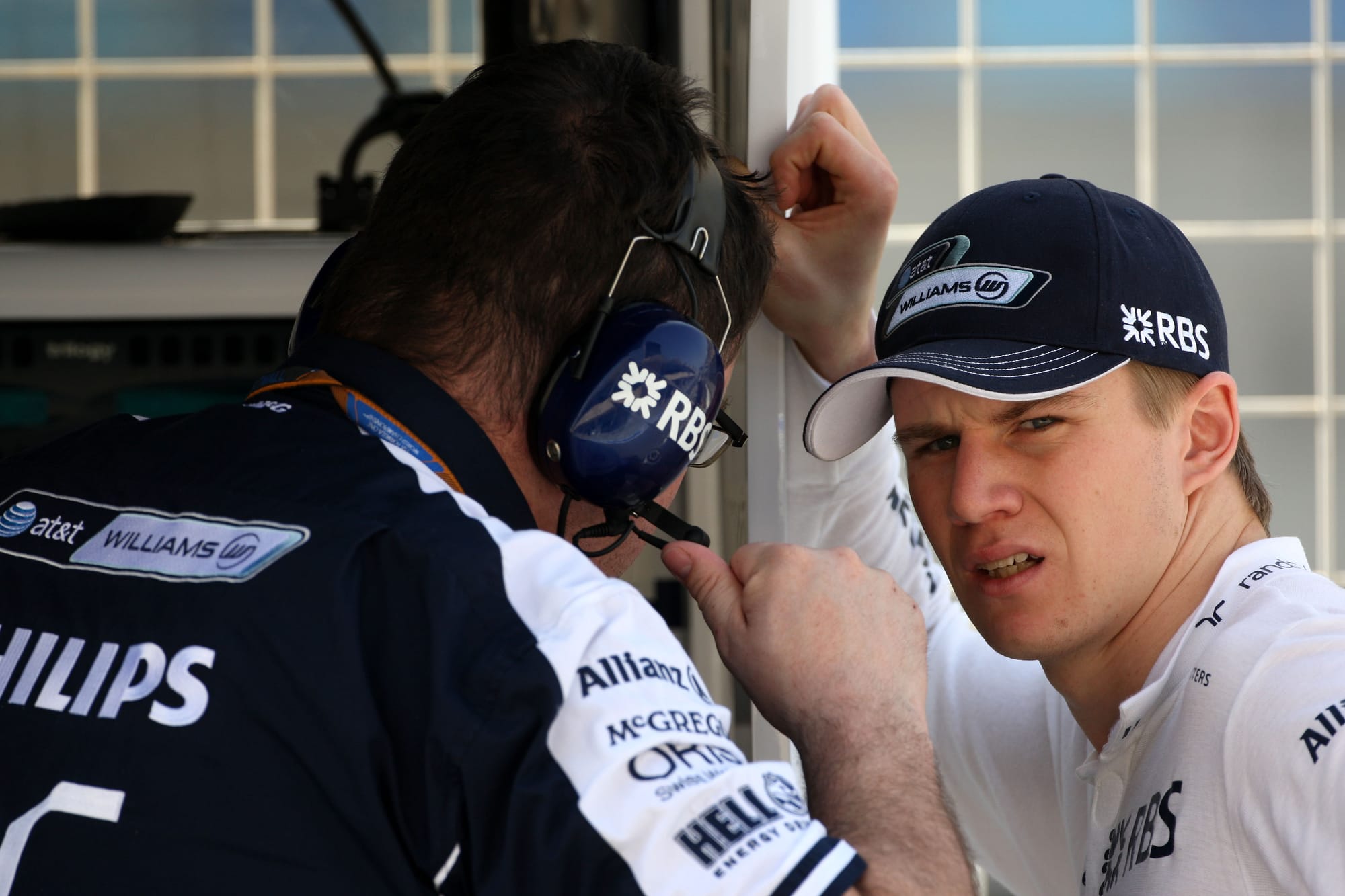
He has his limitations and there have been mistakes, and it’s those rough edges that mean he never managed to make himself the first choice for a top team. But the quality regularly shone through - remember his remarkable performance for Sauber in Korea in 2013 when he held first Lewis Hamilton then Fernando Alonso at bay for so long on his way to fourth place. Even Alonso called him “superb” after that performance.
Then there were days like Saturday at Interlagos in 2010 when he put the midfield Williams on pole position with two laps good enough for first place on slicks in damp conditions.
It's that quality that has kept him on the grid for so long. Even when he dropped out, the job he did on stand-in appearances for Racing Point/Aston Martin during three years on the sidelines from 2020-22 kept him in the game before he was brought back by Haas, which needed an experienced, dependable campaigner with a proven turn of speed.
He paid that confidence back in spades and turned it into a new deal to spearhead Audi’s F1 return when Sauber turns into its works team next year. And this is also an astonishing result for the beleaguered team that has enjoyed a much-deserved recent upturn in form - its first podium since 2012.
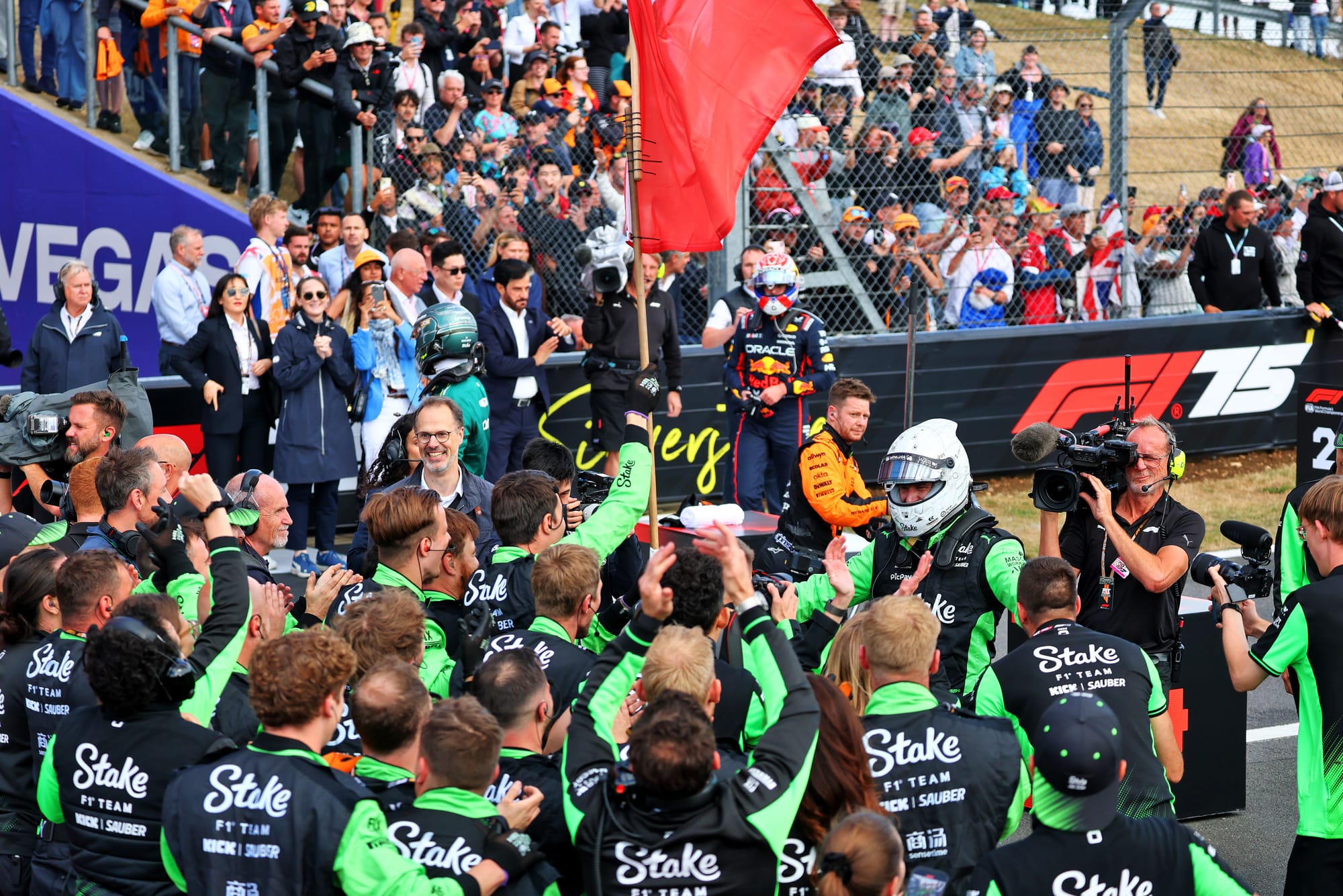
Hulkenberg has taken to this generation of cars, more so than he did at times during previous eras - particularly when tyre management was the overwhelming factor. That was a skillset he developed, turning himself into a mature, dependable racer, no longer the upstart future world champion but a grizzled, battle-hardened competitor still able to cause a surprise or two.
It’s his flaws that stopped him from fulfilling what once appeared to be his destiny, but his many qualities that have made him such an enduring pro in F1.
There may be more chances with Sauber/Audi in the future, and he’ll certainly hope so. But if the first is the only one, and there’s a chance it will be, then at least the terrible injustice of that podium-less record has been fixed.


